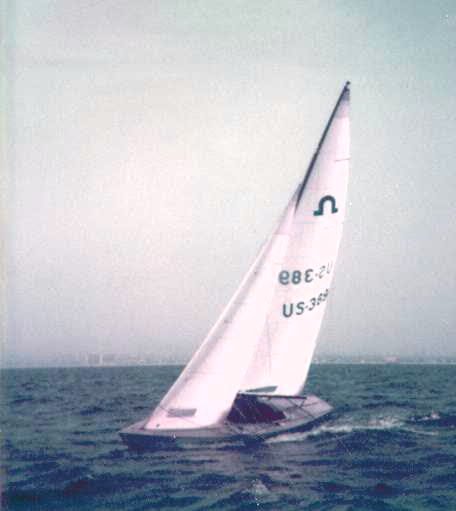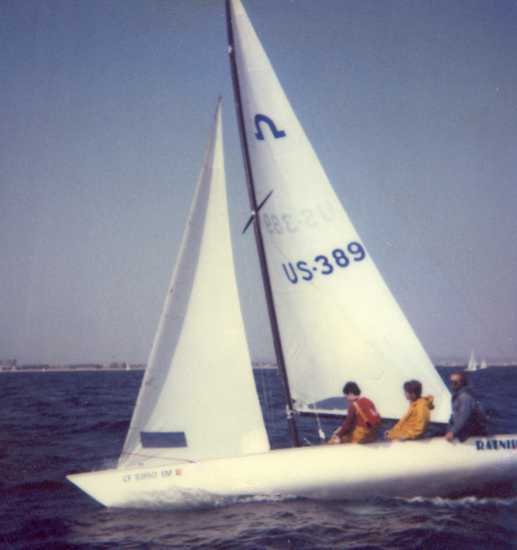Sailing and racing
Soling US 389, "Ratnip"


I learned to sail in Solings in Marina del Rey in the late 1970s and
met my wife, Nina Edmondson, while she was doing the same. In 1980 we
bought Soling US 389. This boat gave us pleasure and memorable
experiences in daysailing and racing.
This boat had a more illustrious racing history than I did. I
collected a fair share of trophies, but this particular boat won the
first ever Soling Worlds in 1969. Paul Elvstrom was her skipper in that
event, sailed while the boat belonged to her Danish first owner.
My personal best tongue-in-cheek bragging rights came when I trophied
in a single-handed race, finishing ahead of Olympic gold medalist Mark
Spitz. It sounds good enough if we just don't mention the
difference between speed in the water and
on the
water.
My most memorable racing experiences were starts at the 1982 Long Beach
Olympic Classes Regatta. With 35 Solings on the start line, we
maneuvered to the best start in the fleet at least a couple times and
were consistently at least among the best.
Solings are a 27-foot keel boat, the largest classt competing in the
Olympics. Most Solings weigh in for serious competition at about 2,285
pounds. At the time I owned US 389 she was overweight, at 2,415
pounds, and my budget only permitted using sails that serious racers
would consider blown out. At that time, those sailing to win in
national or international Soling racing typically would use sails for
no more than two regattas before replacing them. And finally, an
amateur crew will never be as sharp as the serious competitors, whose
lives are consumed by sailing.
But it's fun and challenging. Solings have a complex rig for a
boat their size, with almost all of the controls used on America's Cup
boats but manned by a crew of 3 instead of a dozen. My boat's rig gave
the crew 18 assorted lines to control and trim the sails, counting
adjustments to both running rigging and standing rigging. We used all
of these in each lap around a race course.

